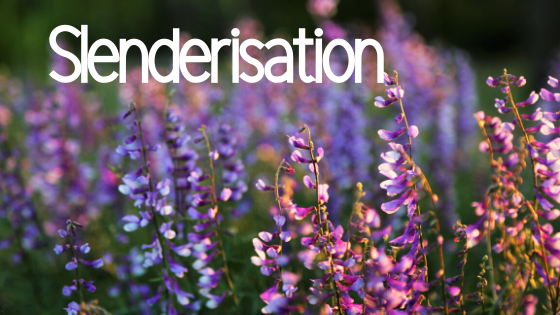|
So you've mastered lenition and you are keeping an eye out for broad and slender vowels and you are feeling pretty good when along comes slenderisation!
"What" you exclaim, "I thought I knew about all the ways words change in Gaelic"! Slenderisation is a change that happens to the end of words (mostly nouns) in Gaelic. It happens in a few places, in the vocative case of male names, in some plurals, in many nouns in the genitive case, and historically in feminine nouns in the dative case*. "But what is it"?! Slenderisation is when the vowel before the last consonant in a word is changed to a slender vowel. If a word ends in a vowel or is already slender nothing changes. However, if the vowel before the last consonant is broad it will change. Here are some examples from each of the categories. vocative: Seumas ---> a Sheumais (James) Plural: bodach ---> bodaich (old man) Genitive: balach ---> balaich (boy) feminine dative: gainmheach ----> air a' ghainmhich (sand) As you can see many times you can just stick an i, especially if your word ends in -ach(bodach-->bodaich). If, like gainmheach it ends in -each you just change it to -ich. Likewise if your word ends in -adh it will change to -aidh and eadh will change to idh. However some times it is a bit more complicated. Here are a few more examples: cnoc ---> cnuic (plural) (hill) bòrd ----> bùird (genitive and plural)(table) ceòl -----> ciùil (genitive)(music) here you can see that o or ò will change to ui/ùi also noting that the e in ceòl changes to i. a can change in a lot of ways: cat ---->cait (genitive and plural)(cat) ràc ---> ràic (genitive)(rake) bàs---> bàis(genitive)(death) fàs--->fàis(genitive) (growth) cas ---->cois(dative) (foot) bas---> bòise(genitive) (palm of hand) mac ---> mic(genitive and plural) (son) falt ---->fuilt (genitive) (hair) However a/à---ai/ài is the most common. ia--->èi Niall ----> a Nèill (vocative) (Nial) grian ---> grèin(dative) (sun) ea-->ei Mìcheal---> a Mhìcheil (vocative) (Michael) each----> eich (genitive and plural) (horse) -ear--->ir fear----fir(genitive and plural) (man) eu--> èi/eòi eun---> eòin (genitive and plural) (bird) leug----> lèig(genitive) (gemstone) feur--->feòir (genitive and plural) (grass) io/ìo---> i/ì sìol--->sìl(genitive and plural) (seed) "Ok, but how do I know what to use?" So if you are looking for a genitive or a plural you can find them easily enough in a dictionary. If you are trying to figure out the vocative of a masculine name you will have to look at the list above and find which one matches your word best. The slenderisation of feminine nouns in the dative case seems to be something that a lot of people no longer do. But it does appear in some phrases and in older writen Gaelic. If you want to figure it out, again you'd have to look at the list and find the best match. There is a nice list of these changes in the Appendices (pg.193/194) of Scottish Gaelic in Three Months by Roibeard O Maolalaigh and Iain MacAonghuis published by Dorling Kindersley (1998 for the version I have) which I consulted in writing this blog post. Later editions of this book were published with the title of Scottish Gaelic in Twelve Weeks.
0 Comments
Leave a Reply. |
Details
AuthorsCaroline has been involved with Gaelic for more than 18 years. She has degrees in Celtic Studies and Gaelic Medium Teaching. Archives
March 2021
Categories
All
|
Proudly powered by Weebly


 RSS Feed
RSS Feed